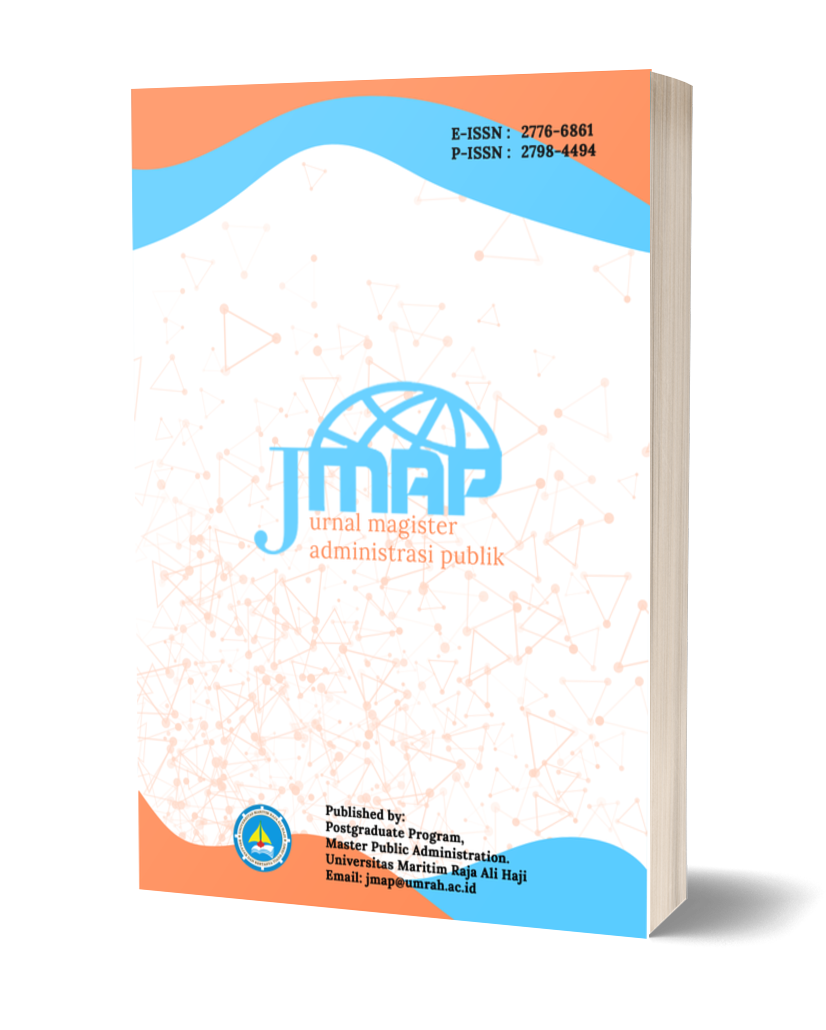Influence Emotional Intelligence and Self-Efficacy Work Stress On Employees Of Malabar Tea Plantation PTPN VIII Nusantara
DOI:
https://doi.org/10.31629/jmap.v2i1.4394Keywords:
Emotional Intelligence, Self-Efficacy, Work Stress, EmployeesAbstract
The high demands of work, the complexity of the workflow, and the higher goals of the organization require every employee to work quickly, focus, and maximally. The pressure of work here is a side that continues to be faced by employees, where high work pressure will be able to cause them to experience stress in addition to causing conflict between them. This is a serious problem currently faced by organizations in the face of global competition. This study aims to determine the impact of the ability to understand individuals at their core and their survival on work pressure. This inspection was led by PTPN VIII Nusantara Malabar tea plantation workers (Design Division). This study uses an explanation and derivation strategy with a solid methodology containing a population of 76 and using an embedded examination procedure. This technique is used to determine the relationship between factors and produce the end of the product under study. The results showed that the pessimistic and large impact between the ability to assess people in-depth on work pressure and self-sufficiency on work pressure had a pessimistic and critical impact. Because the ability to appreciate anyone on a deeper level and self-sufficiency both influence work pressure.
Downloads
References
Arpizal, A. N. (2021). Pengaruh Ekspektasi Pendapat dan Efikasi Diri (Self Efficacy) terhadap Minat Berwirausaha Mahasiswa Pendidikan Ekonomi FKIP Universitas Jambi Angkatan 2017 dan 2018 (Doctoral dissertation, Universitas Jambi).
Chan, X. W. (2017). Self-efficacy and work engagement: test of a chain model. International Journal of Manpower.
Hadijah, S. (2016). Analisis Pengaruh Beban Kerja, Hubungan Interpersonal dan Self-Efficacy Terhadap Stres Kerja Staf Pendamping di Lingkungan DPRD Provinsi, Kabupaten/Kota Se Pulau Lombok. JMM UNRAM-Master Of Management Journal, 5(1)., 1-16.
Hanafi., A. (2016). Johan Gunady Ony . Pengaruh Kecerdasan Emosional Dan Kompetensi Terhadap Kinerja Karyawan Administrasi Perkantoran Rumah Sakit Rk Charitas. Univ Sriwijaya Palembang.
Kusnadi, M. (2014). Hubungan Antara Beban Kerja dan Self Efficay dengan Stres Kerja Pada Dosen Universitas X. Jurnal Psikologi. 3 1 /; pph1-15.
Puspitaningtyas, Z. (2017). Pengaruh efikasi diri dan pengetahuan manajemen keuangan bisnis terhadap intensi berwirausaha. . Jurnal Wira Ekonomi Mikroskil: JWEM, 7(2), 141-150.
Yudithia, Y., & Mahadiansar, M. (2019). Perilaku Organisasi Positif dalam Kinerja: Suatu Konsep dan Teori. Umrah Press.
Published
Issue
Section
License
You are free to:
- Share — copy and redistribute the material in any medium or format for any purpose, even commercially.
- Adapt — remix, transform, and build upon the material for any purpose, even commercially.
- The licensor cannot revoke these freedoms as long as you follow the license terms.
Under the following terms:
- Attribution — You must give appropriate credit, provide a link to the license, and indicate if changes were made . You may do so in any reasonable manner, but not in any way that suggests the licensor endorses you or your use.
- ShareAlike — If you remix, transform, or build upon the material, you must distribute your contributions under the same license as the original.
- No additional restrictions — You may not apply legal terms or technological measures that legally restrict others from doing anything the license permits.
































